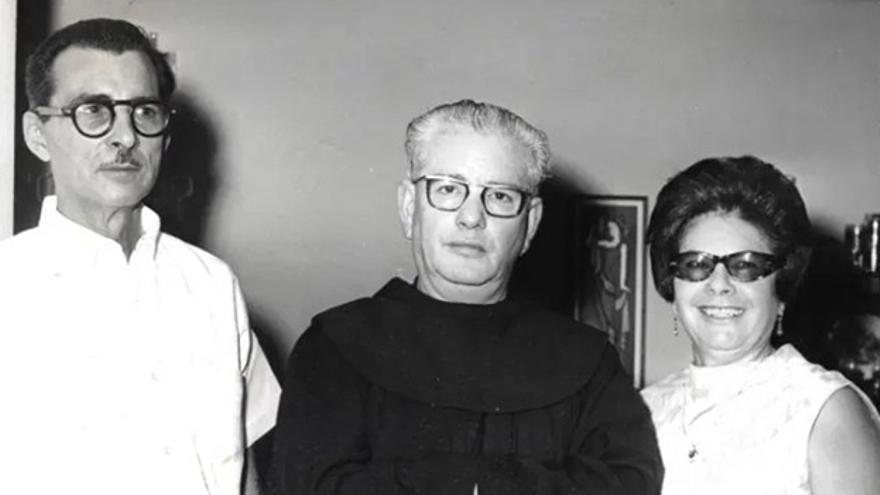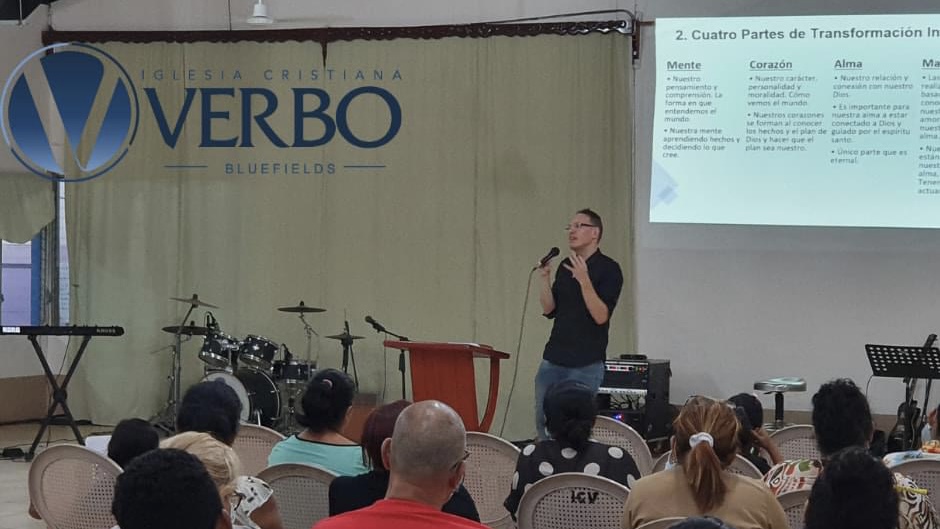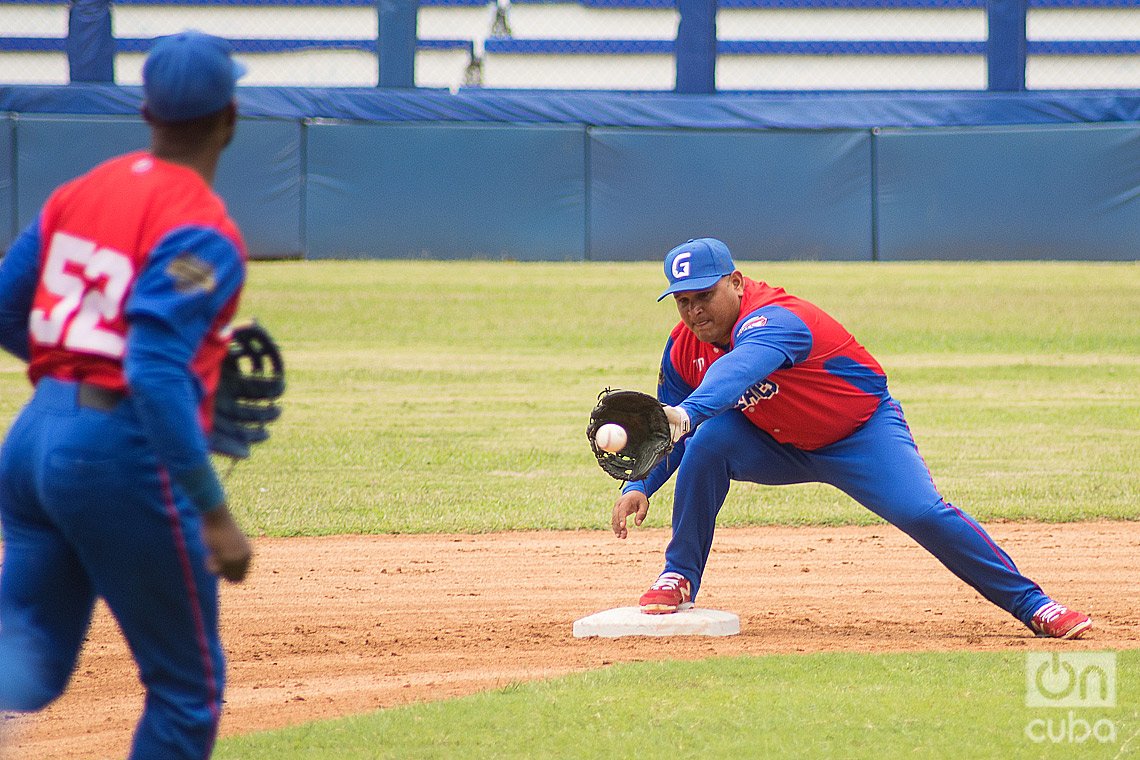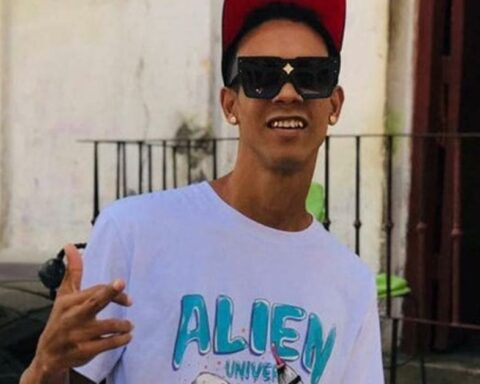On April 25, 1969, Remberto Pérez was reunited with his family in the United States after two years of separation. He had escaped from Cuba when he was about to turn fifteen – the Armed Forces were about to call him up – headed for Madrid, where a Franciscan priest, Antonio Camiñas, would be in charge of receiving him until his parents could leave the Island.
Las Tunas had become an inhospitable city for the Pérez family. His father spent long days under the eastern sun, hit with a machete and without pay: it was Fidel Castro’s punishment for having requested permission to leave the country. The mother, after seeing off the boy Remberto at the airport, discovered that she had become pregnant for the fourth time.
Also left behind was María, the other girl, who after more than fifty years has not forgotten what those last years in Cuba meant to the family. Two years after Remberto’s departure in 1967, they managed to emigrate to the United States.
Remberto and María had a lot to tell each other: he had been part of the so-called “children of Father Camiñas” –between 1966 and 1974, the Franciscan managed to receive around 4,000 minors to shelter them in Spain until necessary–; she had witnessed the deterioration of the country as well as that of the family.
“I left behind a chubby boy and I met a tall and handsome young man in New York who dressed like the Beatles,” María Pérez, 69, now recalls in conversation with 14ymedio. “However, he got scared when he saw us. My father was blackened by the sun, I was very skinny and my mother had gotten sick”.
The silent protagonist of the book, which brings together 50 testimonies, is Antonio Camiñas, a priest born in Remedios, in the former province of Las Villas, and expelled by Castro to Spain.
The story of Remberto and the rest of the children of what some have called Operation Madrid decided tell it both brothers in When I left Cuba (Empty House), with the collaboration of the historian Ricardo Quiza.
The silent protagonist of the book, which brings together 50 testimonies, is Antonio Camiñas, a priest born in Remedios, in the former province of Las Villas, and expelled by Castro to Spain. For María Pérez, it is “a moving story” that has been ignored by Cubans for decades.
From the Madrid church of San Francisco el Grande – which became the headquarters of Camiñas – the reception of minors who came from the Island, and whose recruitment by Castro’s army was imminent, was managed.
“The main reason for removing the children was the Military Service law, which forced young men between the ages of 15 and 27 to remain in Cuba,” explains Pérez, “However, the imminent danger was the Umap (Military Units of Apoyo a la Producción), because the boys were almost all religious and from anti-system families, who had expressed their desire to leave the country.”
“Everyone remembers Camiñas as a kind of angel but with his feet firmly planted on the ground,” he says. “He was very Cuban. They say he smoked a lot. He called the boys and his own family names of endearment. He was also a practical man.
Food, clothing, medicine, transportation: Camiñas was an all-rounder for the administration, which he shared with other priests and Cuban families established in Spain. The children do not forget the black Cadillac of Isabel de Falla –millionaire and belonging to the old Cuban nobility– who picked up the children at the Barajas airport. “It looked like an ocean liner rolling through the streets of Madrid,” they recall in the testimonies.
Camiñas, Pérez points out, never wanted to publicize the trips, not only out of discretion but because he considered it his mission as a human and religious being. Now the children have aged, but that does not mean that, when reconstructing the stories, they “go back in time” to the shelters of El Escorial, Casa de Campo and Navacerrada, where Camiñas placed them.
Those voices are the ones that interest When I left Cuba, a book of testimonies, not of history. It will be up to scholars, says Pérez, to elucidate several deeper questions about Operation Madrid: How did Camiñas manage so that Castro did not interfere in his plans? Was there a secret agreement between the regime and Francisco Franco, the Spanish dictator, who would die not many years later, in 1975? Why did Cuban propaganda decide to hide the story of the “children” instead of using it to discredit the exiles, as happened with Operation Peter Pan in 1960?
“The objective of the book is to open the window to these issues,” Pérez admits. Not even the families involved themselves are sure of the starting point of the plan. In the Cuba of 1966, people began to talk about that “way” to get children out of Spain. You had to go to the Embassy, obtain the documents and buy the ticket.
“It is very difficult for me to think that the Government of Cuba did not agree with that of Spain. Almost 4,000 children cannot leave a country without the regime knowing it, ”he reflects. Spain and Cuba, he adds, never broke relations, and Castro was somewhat cordial with Franco, of whom he said that he “never treated badly” his government.
“It is very difficult for me to think that the Government of Cuba did not agree with that of Spain. Almost 4,000 children cannot leave a country without the regime knowing it,” he reflects.
At first there was some disorder, says the co-author of When I left Cuba, as in the case of the child who arrived at Barajas and there was no one to pick him up. “A policeman spoke with him, took him to an office where, luckily, they knew what Camiñas was doing. One of the officials took him to his house, welcomed him there, and the next day they took him to the priest”, he recounts.
Another case was that of the youngest child –11 years old–, who was sent directly in a bus to San Francisco el Grande. “Given these situations, Camiñas began to organize daily visits to the airport, to see if there were children who came alone. There were many volunteers who helped him, ”he explains.
In El Escorial and the other shelters, the children lived their adolescence to the fullest that circumstances allowed them. They collected pesetas to go on a trip to Madrid, they posed as tour guides and the visitors liked them, and they talked non-stop. “At night they cried; in the morning they got up to play ball,” summarizes Perez. “Of those I know, none of them reproached their parents for making that decision.”
When the time came, the whole story had to be told. Remberto arrived at his sister’s house and told her: “Oskar Schindler saved hundreds of Jews from the Holocaust, and everyone knows him. However, Father Camiñas saved almost 4,000 Cuban children and today no one remembers who he was.”
María’s first idea was to go to the writer Enrique del Risco, who could not take on the project but recommended Ricardo Quiza as a collaborator. The process lasted two years, in which dozens of “children” were interviewed. “Everything is recorded,” says Pérez, “thinking about an audiovisual future.”
After seeing the result and the reception of When I left Cuba, the Pérez are convinced that it will become increasingly difficult for the regime to hide the history of Operation Madrid. “My parents were sure of one thing: they wanted to save their children. I think they succeeded,” says María, whose memory –as the song by Luis Aguilé that gives its name to the book says– “beats and continues to beat” for the Island.
________________________
Collaborate with our work:
The team of 14ymedio He is committed to doing serious journalism that reflects the reality of deep Cuba. Thank you for accompanying us on this long road. We invite you to continue supporting us, but this time making you a member of our newspaper. Together we can continue transforming journalism in Cuba.








